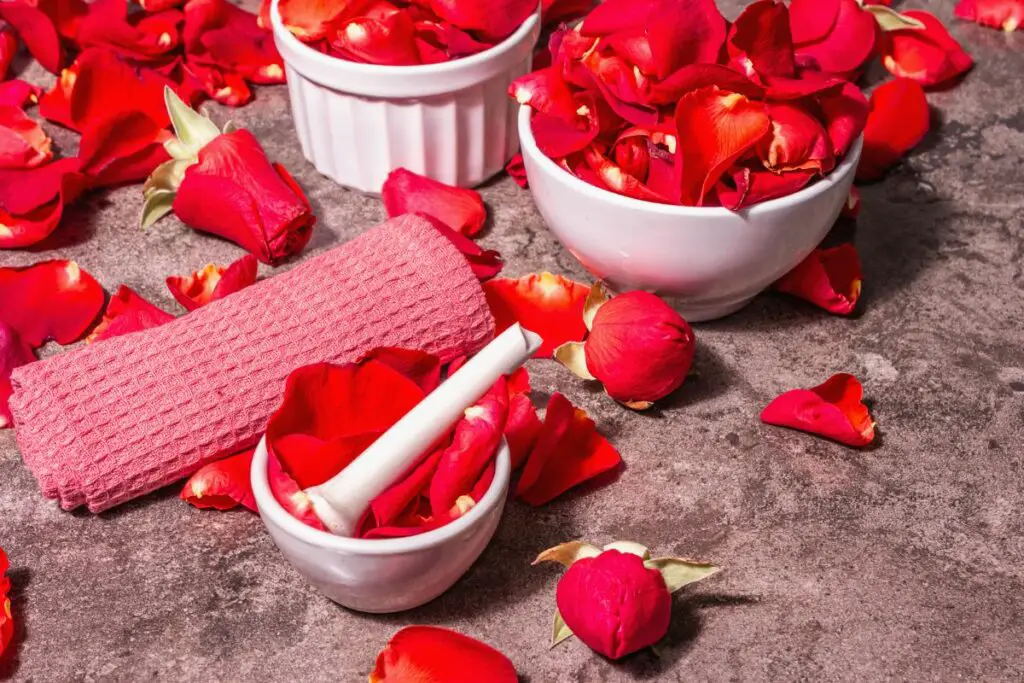Creating a personal altar can be a deeply spiritual and fulfilling practice. For those devoted to Aphrodite, the Greek goddess of love and beauty, an altar dedicated to her is a way to connect with her essence.
An Aphrodite altar typically includes representations of the goddess, such as statues or images, alongside elements associated with her, like seashells, mirrors, or rose quartz, each symbolizing different aspects of love and beauty she embodies.
While the process of creating your Aphrodite altar is deeply personal, there are common practices and symbols that many follow to ensure their space resonates with the energy of the goddess.
The beauty of this practice lies in the freedom to infuse your own intentions and individuality into the altar, making your connection to Aphrodite unique to you. Whether you’re a longtime follower or new to goddess worship, setting up an altar is a simple yet profound act of devotion.
Understanding the Goddess Aphrodite
When you’re creating an altar for Aphrodite, it helps to first understand who she is. Aphrodite is the ancient Greek goddess of love, beauty, pleasure, and procreation.
To connect with her energies, appreciate that she embodies all forms of love—from the fiery passion of romantic entanglements to the steadfast love found in deep friendships.
Here’s a quick breakdown to guide you:
- Domains: Love, Beauty, Fertility, and Pleasure
- Symbols: Doves, swans, roses, and myrtles are sacred to her.
- Colors: Pink, red, and white often represent her essence well.
Aphrodite’s influence extends beyond mere attraction; she is central to the celebration and enjoyment of life. Recognize her role in enhancing relationships and promoting personal confidence and allure.
In your devotion, you’ll want to honor her by incorporating elements that are meaningful to her myths and stories:
- Mythology: Familiarize yourself with her origin story—born from sea foam and revered across the ancient world.
- Offerings: Consider roses or apples as traditional offerings, which show your understanding of her symbolism.
Approach your altar creation with respect and love, as these are the very principles that Aphrodite herself cherishes. By doing so, you invite the essence of her divine beauty and grace into your space.

Choosing a Location for Your Altar
When creating an altar for Aphrodite, selecting the right location is essential for fostering a connection with the goddess of love and beauty. Your chosen spot should help you feel serene, focused, and harmonious.
Indoor Altar Considerations
Privacy: Choose a space in your home where you’re unlikely to be disturbed. This could be a quiet corner of your bedroom or a dedicated meditation area.
- Ambiance: Make sure the area is aesthetically pleasing and free from clutter. Soft lighting or candles can enhance the mood.
- Accessibility: Your altar should be conveniently located so that you can visit it regularly without it feeling like a chore.
Outdoor Altar Spaces
Nature Connection: Find a tranquil spot in nature, perhaps in a garden or overlooking a body of water, to resonate with Aphrodite’s ties to the natural world.
- Shelter: Ensure the location is somewhat protected from the elements, so that offerings and altar items remain undisturbed.
- Respect: Setting up an altar outside should be done with consideration for local wildlife and ecosystems, ensuring the sacred space is harmonious with the surroundings.
Gathering Altar Supplies
Building your Aphrodite altar begins with selecting the right items that resonate with love and beauty. These objects will serve as the foundation for your sacred space and should be chosen with care.
Statues and Symbols
Begin by finding a statue or image of Aphrodite that truly speaks to you, as this will be a centerpiece of your altar. You may want to incorporate symbols associated with her such as seashells or a mirror. These items carry the essence of the goddess and help focus your devotion.
Candles and Incense
Next, choose candles and incense that have scents associated with Aphrodite. Rose, myrtle, or any sweet floral fragrance will do. These items are important for setting a mood that is calming and conducive to reflection and should be arranged in a way that pleases your senses.

Offering Dishes and Libation Bowls
Finally, you’ll need offering dishes and libation bowls. These are used to hold offerings such as honey, wine, or sweet treats—foods that are pleasing to Aphrodite. Select dishes that feel special to you, as they will be used to present your gifts to the goddess.
Assembling and Consecrating the Altar
Creating an altar dedicated to Aphrodite requires thoughtful selection of items and meaningful rituals. This is how you create a space that honors the goddess and resonates with her energies of love and beauty.
Arranging Altar Items
Begin assembling your altar by choosing a location that feels intimate and peaceful. You’ll want to make sure the space is clean and ready for your sacred items. Assemble the altar with:
- Statue or Image: Position a representation of Aphrodite centrally to acknowledge her importance.
- Natural Elements: Decorate with flowers, seashells, or feathers to symbolize her connection to the natural world.
- Personal Touches: Include beauty products like perfume or makeup to reflect her domain over love and beauty.
- Offerings: Select offerings that are meaningful to you and resonate with Aphrodite’s values, such as a bowl of sea water or a heart-shaped stone.
Consecration Rituals
The consecration of your altar involves performing specific rituals to dedicate this sacred space to Aphrodite. These rituals may include:
- Cleansing: Begin by using sage, palo santo, or incense to cleanse the area. Move in a clockwise circle around your altar to clear negative energies.
- Invocation: Invite Aphrodite to your altar by reciting an invocation that expresses your intentions and devotion.
- Offerings: Place your offerings with intention, verbalizing each item’s significance as you dedicate it to Aphrodite.
Through these steps, your altar becomes a consecrated space, connecting you to the energy of the goddess Aphrodite.
